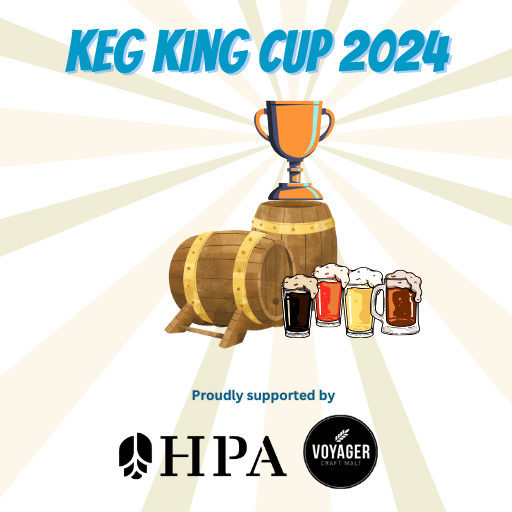The Keg King Cup is BACK!
2024 marks the second year of one of THE BEST brewing competitions in Australia.
Year two is going to be even better with more prizes to the winner!
We have more sponsors including our friends at Hop Products Australia and Voyager Malt plus we have the NEW highly coveted golden PET trophy cup itself!
This year the target style is simple:


